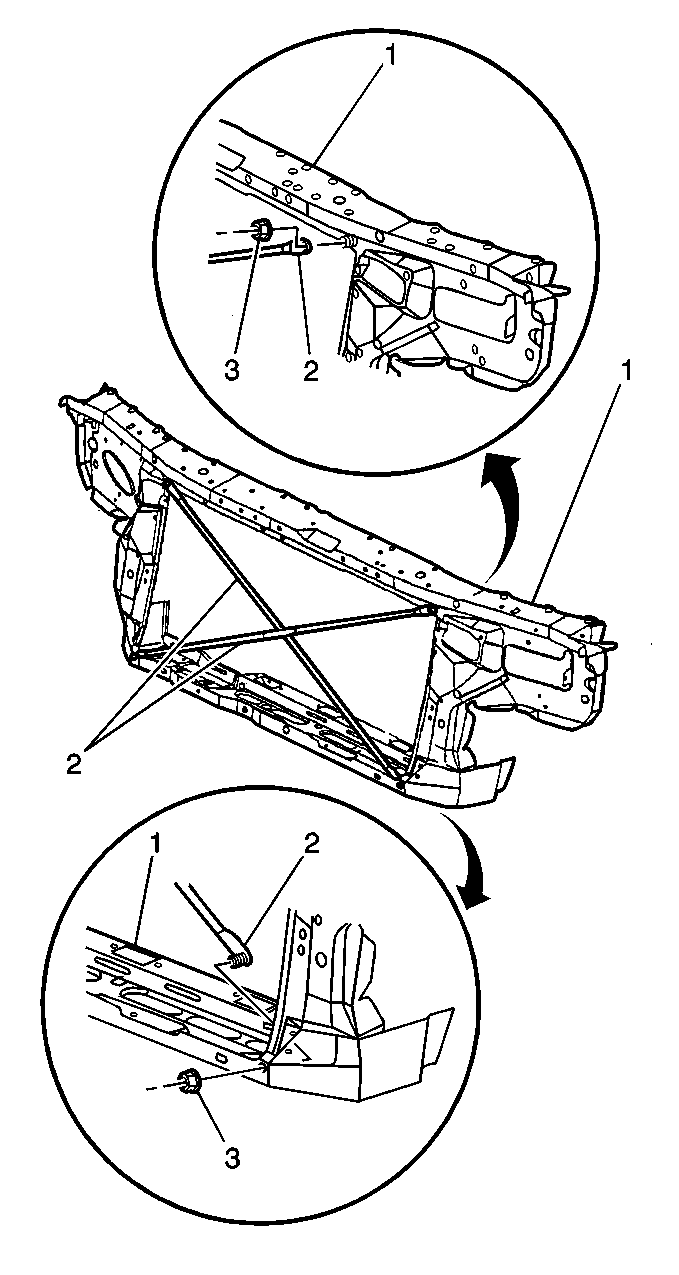The radiator support is serviced as a complete assembly.
The radiator support attaches to the following components:
| • | The front of the upper rails |
| • | The wheelhouse assemblies |
Removal Procedure

- Remove all of the related
panels and the components.
- Visually inspect and restore as much of the damage as possible
to factory specifications.
- Remove the following components as needed:
- Locate and mark all of the factory welds.
- Drill out all of the factory welds.
Note the number of welds for installation of the replacement radiator
support assembly.
- Remove the damaged radiator support assembly (1).
Installation Procedure

- Prepare the mating surfaces
and inspect for proper fit of the replacement radiator support assembly (1).
- On the replacement radiator support assembly, drill 8 mm
(5/16 in) holes as needed at the locations noted from the original
assembly.
- Position the replacement radiator support assembly.
- Use the body dimensions in order to inspect the fit. Refer to
Body Dimensions in Frame and Underbody.
- Plug the welds accordingly.
Measure frequently in order to ensure proper fit.
- Clean and prepare the welded surfaces.
- Prime the surfaces with 2-part catalyzed primer.
- Apply sealers and corrosion protection materials as needed. Do
not combine paint systems. Refer to paint manufacturer's recommendations.
Notice: Use the correct fastener in the correct location. Replacement fasteners
must be the correct part number for that application. Fasteners requiring
replacement or fasteners requiring the use of thread locking compound or sealant
are identified in the service procedure. Do not use paints, lubricants, or
corrosion inhibitors on fasteners or fastener joint surfaces unless specified.
These coatings affect fastener torque and joint clamping force and may damage
the fastener. Use the correct tightening sequence and specifications when
installing fasteners in order to avoid damage to parts and systems.
- Reinstall all of
the related panels and components.
Tighten
Refer to the appropriate section of the service manual for component
fastener tightening specifications.


